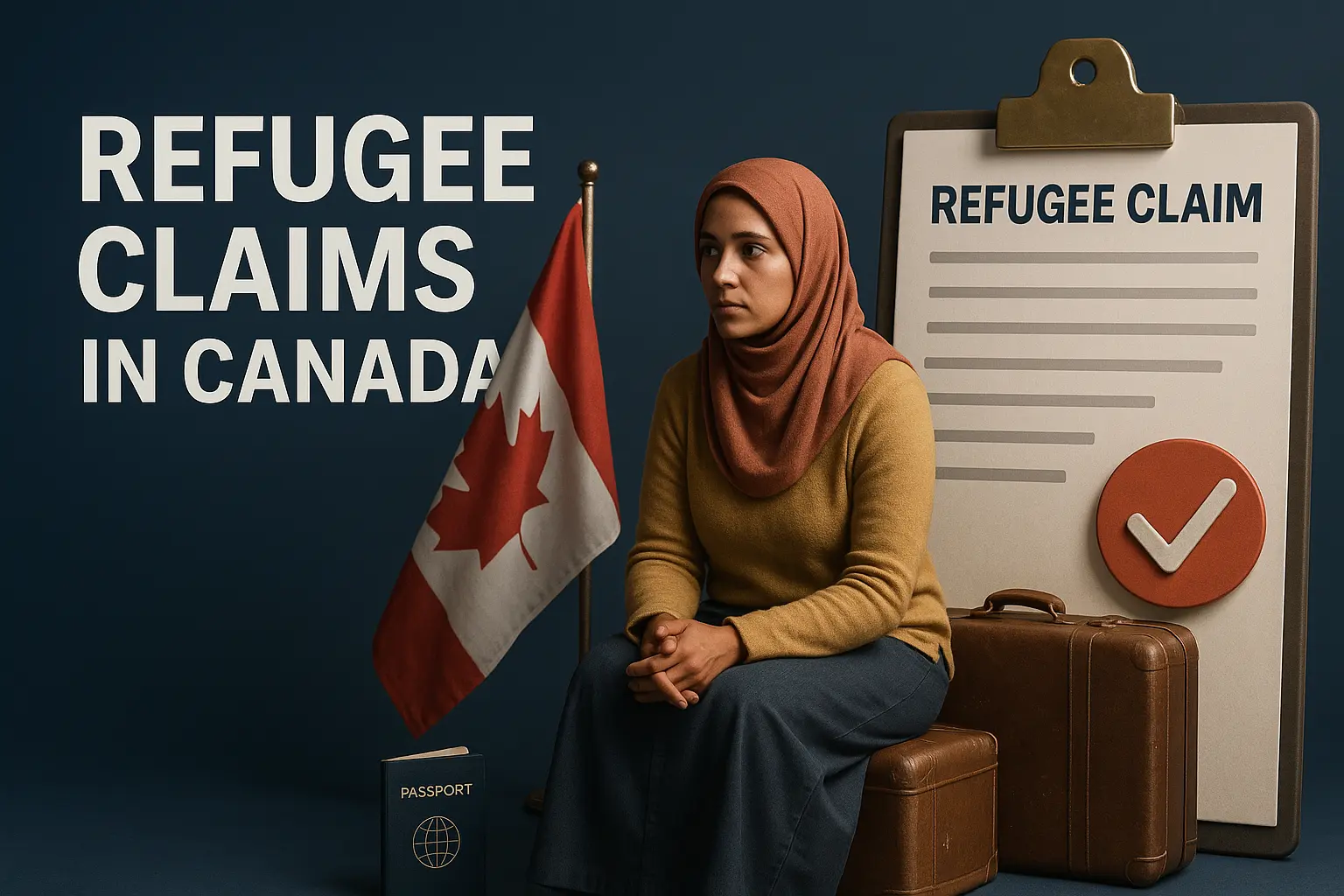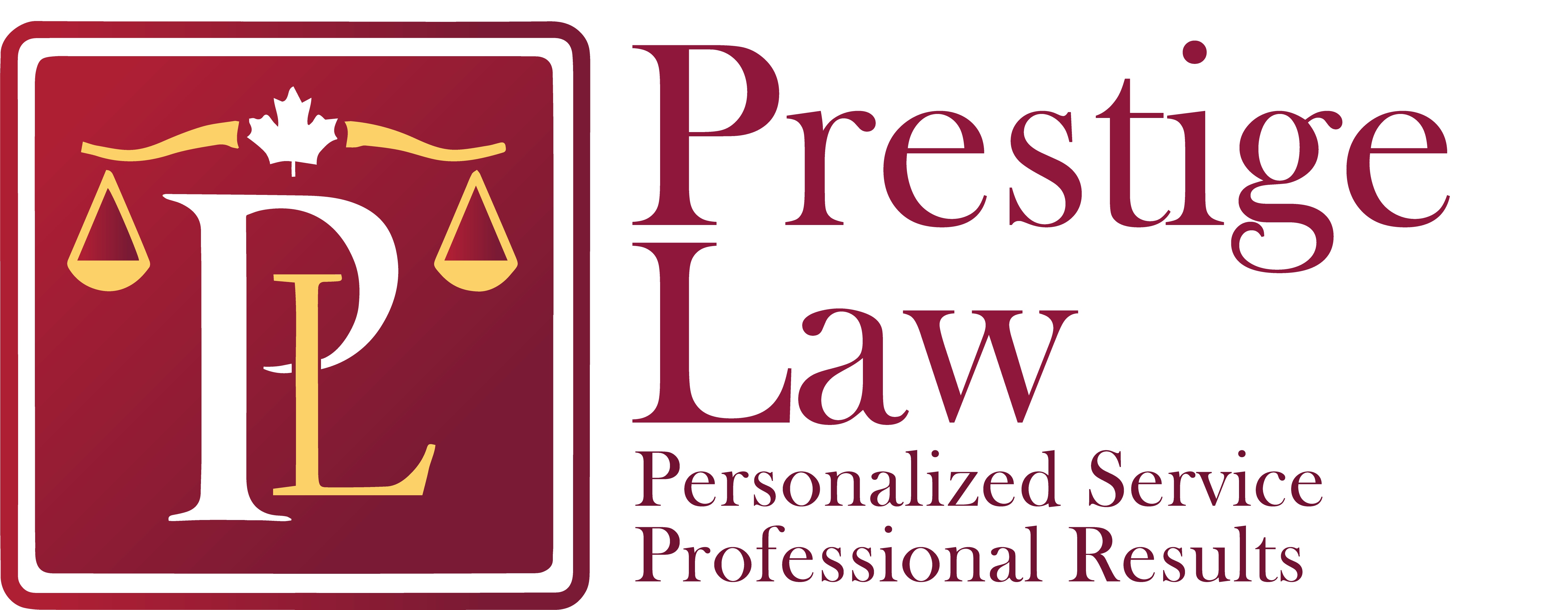Refugee Claims in Canada: A Complete Legal Guide for 2025
Every day, individuals around the world flee persecution, war, or the threat of violence in search of safety. Canada stands out as one of the few nations that offers a comprehensive legal process to help such individuals commonly known as Refugee Claims rebuild their lives with dignity and legal protection.
In this guide, created by the expert legal team at prestigelaw.ca, we explore every detail of the refugee claim process in Canada for 2025. This includes eligibility, how to apply, legal procedures, expert tips, and answers to the most common questions.

What Is a Refugee Claim in Canada?
A refugee claim is a formal legal request made by someone who is already in Canada (or at a border point) asking for protection because they fear persecution or serious harm in their home country. Refugee Claims
This fear must be based on one or more of the following grounds: Race, Religion, Nationality, Political opinion, Membership in a particular social group (e.g., LGBTQ+ community, women facing gender violence) Refugee Claims
Canada reviews such claims through the Immigration and Refugee Board of Canada (IRB).
Why Do People Seek Refugee Protection in Canada?
People don’t leave their homes lightly. They leave because they have no choice. At Prestige Law, we’ve supported clients who fled:
- Armed conflicts and civil wars
- Religious extremism
- Government torture or police brutality
- Human trafficking and forced labour
- Domestic abuse or gender-based violence
Canada’s refugee system offers not just legal relief but a new chance at life free from fear.
Who Can Make a Refugee Claim in Canada?
To qualify for making a refugee claim, you must:
- Be inside Canada or at a border (airport, seaport, or land crossing)
- Not be under a removal order
- Not already being recognized as a refugee in another country
- Not have previously made a rejected claim in Canada
Important Note: If you entered Canada from a “Safe Third Country” like the U.S., your claim may be ineligible unless you qualify for an exception (e.g., family ties in Canada).
Step-by-Step: How to Make a Refugee Claim in Canada
Step 1: Arrival & Initial Declaration
At the point of entry, or once inside Canada, you must declare your intention to seek asylum. You will be given documents and told to submit a Basis of Claim (BOC) form.
Step 2: Submit the Basis of Claim (BOC) Form
This is the heart of your refugee application. It must detail: Refugee Claims
- Why do you fear returning home
- What events or threats have you experienced
- Proof such as police reports, medical records, news articles, or affidavits
It must be submitted within 15 days of your eligibility interview or your claim may be dismissed.
Step 3: Refugee Hearing at the IRB
If your claim is accepted for review, you’ll be scheduled for a hearing before the IRB’s Refugee Protection Division (RPD). This is where you tell your story in person, provide testimony, and submit further evidence. Refugee Claims
Having a qualified immigration lawyer like those at Prestige Law can help ensure you’re thoroughly prepared.
After the Hearing: What to Expect
If your claim is accepted: Refugee Claims
- You’ll be granted Protected Person status.
- You can apply for a Permanent Residency (PR).
- You’ll have access to healthcare, education, and employment rights.
If your claim is rejected:
You may:
- Appeal to the Refugee Appeal Division (RAD), or
- File for judicial review at the Federal Court
- Apply for a Humanitarian and Compassionate (H&C) application if new circumstances arise
The Legal Edge: Why Expert Help Matters
Refugee law in Canada is both complicated and strict. A poorly prepared claim can result in rejection even for someone in legitimate danger.
At Prestige Law, we offer: Refugee Claims
- Expert legal drafting of your BOC
- Representation at IRB hearings
- Translation and documentation support
- Appeals and post-rejection options
- Personalized legal strategy tailored to your case
We’ve helped hundreds of claimants get a fair hearing and permanent protection in Canada.
Top Mistakes to Avoid in Refugee Claim
Incomplete or inconsistent BOC forms
Submitting fake or unverifiable documents
Delaying legal help until too late
Conflicting testimony during the hearing
These errors reduce credibility and can derail even a strong case.
How Long Does a Refugee Claim Take in 2025?
StageEstimated Time Refugee Claims
Eligibility decision 2–6 weeks
Hearing scheduling (IRB) 6–12 months
Appeals or Judicial Reviews 3–6 months
During this time, you may qualify for:
- A temporary work permit
- Provincial health insurance
- Access to shelters and legal aid
Expert Tips to Strengthen Your Claim
Keep detailed notes of your past experiences
Collect and translate documents (birth certificates, arrest warrants, threats)
Have a credible timeline with dates and places
Find a lawyer who knows refugee law inside-out
Practice for your IRB hearing with mock questions
Your Rights as a Refugee Claim in Canada
As a claimant, you have the right to: Refugee Claims
- Live and work in Canada during the review
- Access legal aid and translation services
- Appeal unfavourable decisions
- Be treated with dignity under the Charter of Rights and Freedoms
Refugee Claims vs. Resettlement vs. H&C Applications
TypeWhere You ApplyMain Difference
Refugee Claim Inside Canada You apply directly due to fear of persecution
Resettlement From abroad Through UN or private sponsorship
Humanitarian & Compassionate Inside Canada Based on hardship, not direct refugee criteria
FAQ: Refugee Claims in Canada
Can I apply for refugee status while on a visitor visa?
Yes, as long as you’re already in Canada or at a port of entry.
Will my family be protected too?
Yes, you can include your spouse and children in your claim or sponsor them after being accepted.
Is it safe to tell my full story in court?
Yes. All hearings are confidential. Only the IRB members and your lawyer will hear your testimony.
What if I lose my case?
You still have legal options appeal, judicial review, or H&C application. Don’t give up. Contact us.
Final Words: Let Prestige Law Stand With You
Filing a refugee claim is not just about legal paperwork it’s about your right to live without fear.
At Prestige Law, our team believes every person deserves to be heard, supported, and protected. We walk with you from your first consultation to the final ruling with legal clarity, compassion, and commitment.
📞 Contact us today to book a confidential consultation.
Your safety is our mission.




